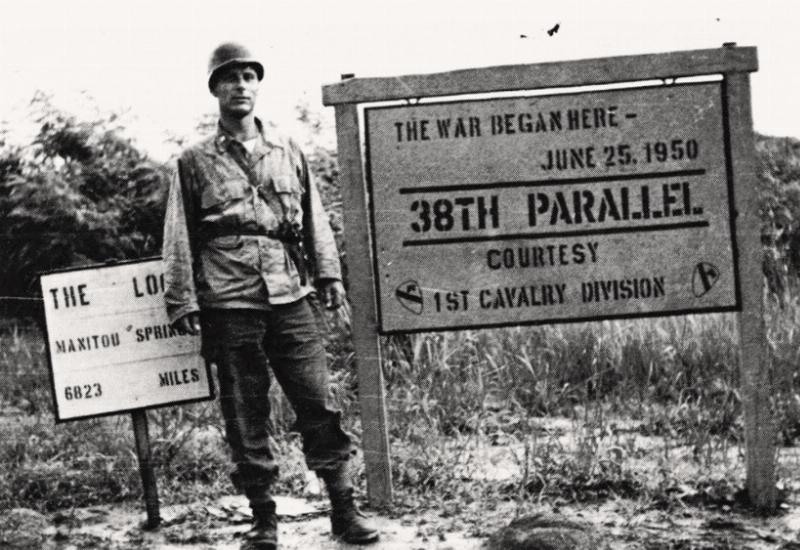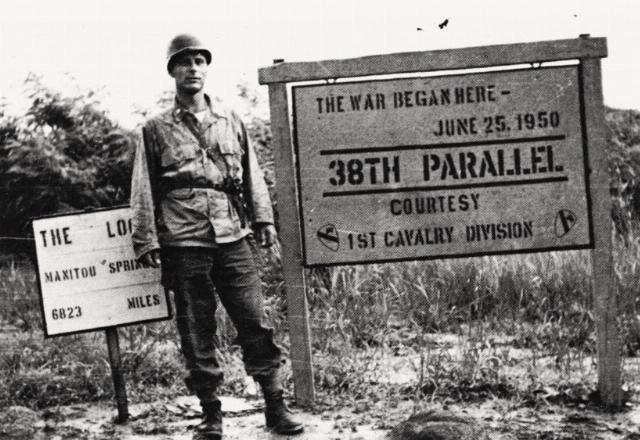


June 25, 2025, marked the 75th anniversary of the Korean War's beginning. No ceremonies took place at the Korean War Veterans Memorial or Arlington National Cemetery, and there were no statements from the President, the Secretary of Defense, the Service secretaries, the chairman of the Joint Chiefs of Staff, or the Service Chiefs of Staff to mark the occasion.
If the Korean War is known as the ‘forgotten war,’ then post-armistice (July 27, 1953) operations within and along the U.S. Sector of the Korean DMZ are the ‘unknown war.’
Ever since President Harry S. Truman agreed to the term ‘police action,' Korean veterans have faced stigma, discrimination, and unequal treatment from the leaders who sent them there. “The real idea was to fix in the public eye a picture of the government in a calm mood... to keep Korea in its place: a minor incident, not a full-scale war... and to some, it seemed the official line of the Government was to play down the war...”
The October 5, 1951, edition of U.S. News and World Report coined the term ‘forgotten war.’ Other notable quotes in that edition include “It’s a war the U.S. doesn’t want and has told the world it does not intend to win,” and “Why Korea is so embarrassing to officials trying to forget it.”
The Korean War has often been called “The Forgotten War,” but for many veterans, the forgetting didn’t end in 1953. Those who served in Korea -- both during the war and in the decades afterward -- have carried a stigma that has never been fully addressed. Why is that? And what can we do about it?
A War Without an Ending
For Korean War veterans, the problem started with how the war ended: not with victory, but with a ceasefire. There was no treaty, no parades, no catharsis. The American public quickly moved on, focusing on the Cold War in Europe and later Vietnam. Many Korean War veterans returned to silence. No celebrations. No recognition. They were heroes, but few ever acknowledged them.
The Overlooked Warriors of the DMZ
Then came the veterans of the Korean Demilitarized Zone -- the so-called “Korean Defense” veterans who served from 1954 to the early 1990s. Although their service involved real, often intense combat -- patrolling mined terrain, intercepting infiltrators, enduring sniper fire, and surviving deadly ambushes -- it was rarely recognized as such. The official stance was that Korea was a “peacetime” assignment. Tell that to the soldiers who fought during the 1966-1969 DMZ conflict. These troops defended against North Korean forces during the Axe Murder Incident in 1976, or the firefight at the Joint Security Area in Panmunjom on November 23, 1984.
Korean DMZ veterans were exposed to Agent Orange sprayed directly on the ground in concentrated form to clear fields of fire, but the VA limited presumptive exposure dates to August 31, 1971, despite combat patrols and spraying continuing for years afterward.
These veterans were denied combat recognition, denied hazardous duty pay, and in many cases, denied access to the full range of benefits due to the bureaucratic refusal to call a war a war.
Out of Sight, Out of Mind
Part of the issue is awareness. Korean service after 1953 was mainly classified, hidden from the media, or downplayed for political reasons. The United States sought to project strength and stability in the region, rather than vulnerability. Admitting that dozens of U.S. troops were killed or wounded in hostile actions each year on the DMZ didn’t align with the Cold War story.
So while Vietnam veterans eventually received long-overdue recognition and support, Korean Defense veterans were left in the shadows, rarely mentioned in textbooks, documentaries, or public commemorations.
The Stigma in the System
The result? An unfair stigma. A feeling that their service “didn’t count” -- not in history books, not in VA policy, and sometimes not even in their communities.
Shame. It was a hectic week with the NATO Summit and the bombing of Iran’s nuclear facilities, but it seems pretty clear there was no planning to mark this event officially.
Kevin Mason, a retired Army officer who commanded an infantry company on the Korean DMZ from 1983 to 1984, was recently named Director of Legislation for the Korean War Veterans Association. His uncle, MSG Roger Mason, a Korean War veteran, is one of the few to receive the Combat Infantryman Badge three times.

Image: US Army
